Want to reach your audience instantly even when they’re not browsing your website? 🔔
Push notification ads send real-time messages straight to their device 📱💻 without needing emails or apps.
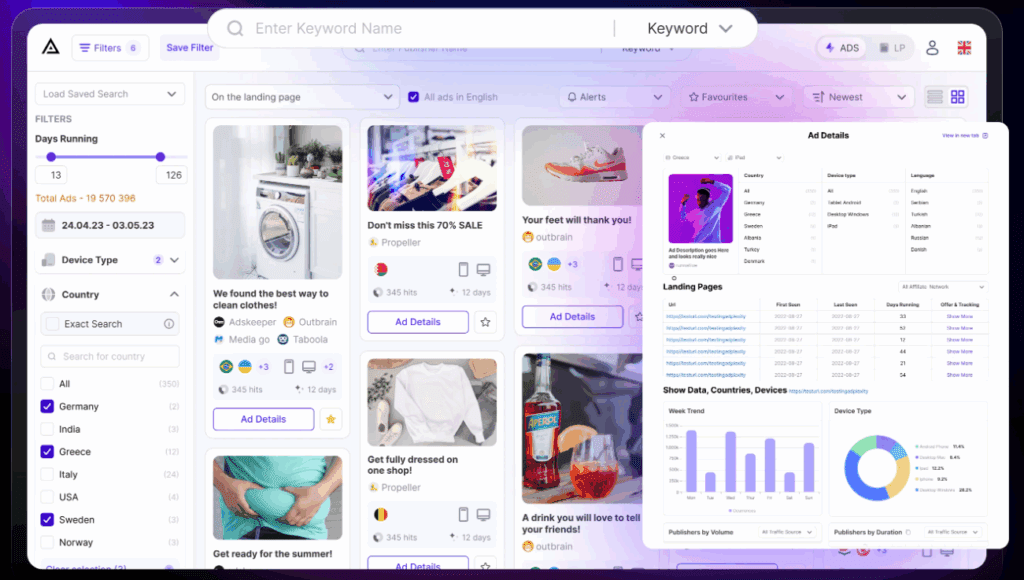
They create urgency and curiosity with limited-time offers or updates that users can’t ignore ⏰🔥
This leads to more clicks, better engagement, and higher conversions all at a low cost 📈
What Does Push Advertising Includes?
These below mentioned details are the main elements that are included in push advertising.
1. Ad Creatives (Short Messages)
Push ads are built using short and direct content. This typically includes:
- A headline or title that grabs attention
- A short message or description (usually 1–2 lines)
- An optional image or icon to make it visually appealing
- A call-to-action button like “Visit Now,” “Buy Today,” or “Get Offer”
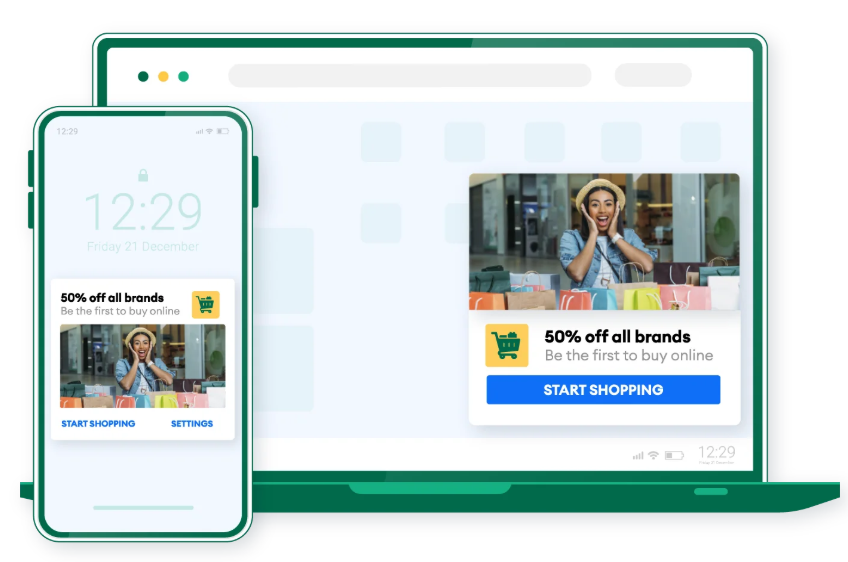
2. User Permission (Opt-in Process)
Before users can receive push notifications, they must give permission by clicking “Allow” when prompted on a website or app. This opt-in process ensures that you’re only sending messages to users who are interested.
3. Push Ad Platforms and Tools
To run push ads, you need a platform or tool that supports push delivery. There are two main types:
- Self-hosted tools like OneSignal, Truepush, or Webpushr for sending notifications from your own website or app.
- Ad networks like PropellerAds, RichAds, or EvaDav that allow you to run push ads to a wider audience without needing your own subscribers.
4. Audience Targeting Options
Push advertising platforms offer advanced targeting, such as:
- Location (country, state, or city)
- Device type (mobile, tablet, or desktop)
- Browser or operating system (Chrome, Android, iOS, etc.)
- Time zones and delivery time preferences
- User behavior, such as how many times they visited your site or if they added items to a cart
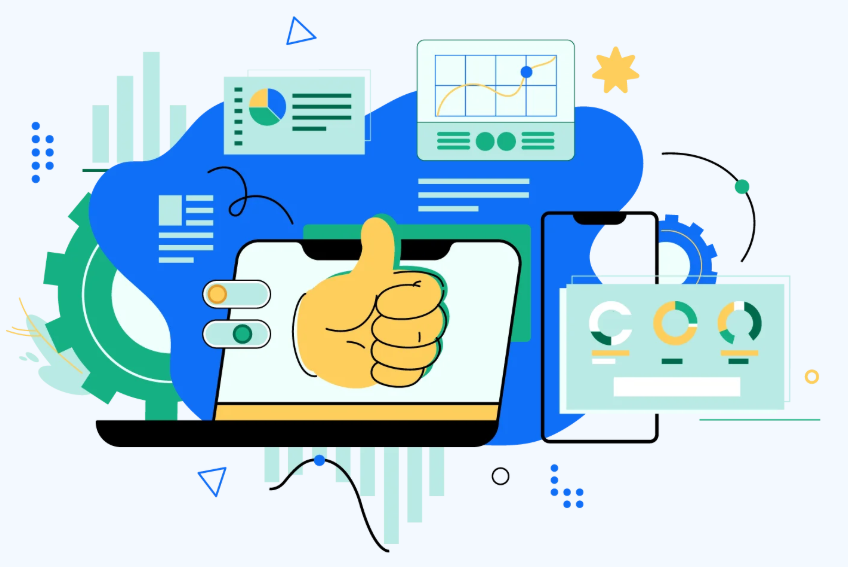
5. Automation and Scheduling
You can schedule push messages to be sent at specific times, or trigger them based on user actions (for example, sending a reminder after a cart is abandoned). Automation helps improve engagement without manual effort.
6. Performance Tracking and Analytics
Push advertising includes detailed metrics so you can track:
- Number of messages delivered
- Number of clicks
- Click-through rate (CTR)
- Conversions or sales
- Opt-in and opt-out rates
These insights help you optimize future campaigns.

7. Compliance and User Control
Push ads must follow browser rules and ad policies. Users should always have the option to unsubscribe. Also, messages must not be misleading, overly aggressive, or spammy to stay within guidelines and maintain trust.
Benefits Of Using Push Notification Advertising?
Here are 7 detailed reasons why you should use push notification advertising, written in simple words:
1. Instant Delivery and High Visibility
Push notifications are delivered instantly and appear right on the user’s screen—just like a message alert.
Unlike emails that sit unread in the inbox or ads that users scroll past, push ads show up front and center. This real-time delivery is perfect for sending urgent updates, flash sales, or limited-time deals that need immediate attention.
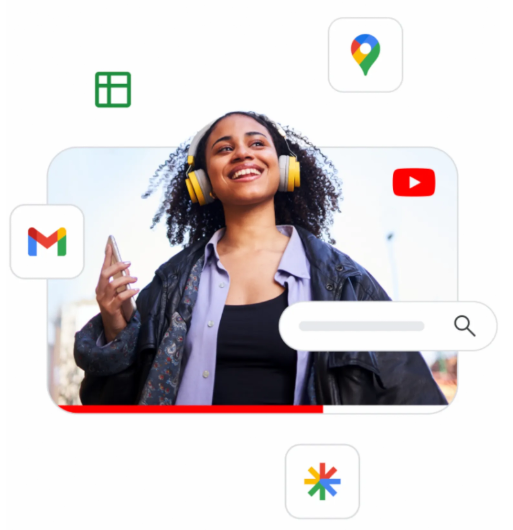
The visibility is high because the user doesn’t have to open an app or webpage to see it—it’s already there.
2. No Need for Emails or Phone Numbers
With push notifications, you don’t need to collect personal information like email IDs or phone numbers.
Once a user gives permission to receive notifications, you can directly send them messages. This makes it easier and faster to build your audience.
It’s also more privacy-friendly, as users don’t need to share sensitive data. Just one click to “Allow” and they’re in your list.
3. Higher Click-Through Rates (CTR)
Push notifications have a higher open and click-through rate than many other channels.
Because the messages pop up in real-time and look like personal alerts, users are more likely to notice them and click. In fact, many advertisers report CTRs that are 2x to 5x higher than email campaigns.
This means more traffic to your website or landing page without spending more.
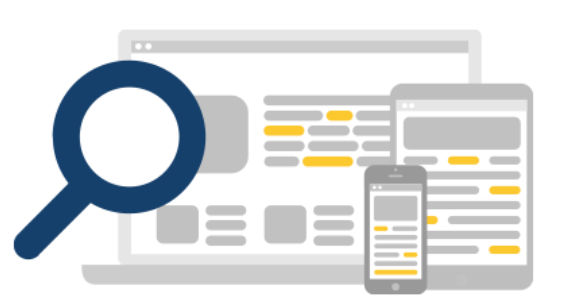
4. Excellent for Retargeting Visitors
Have visitors left your website without signing up or making a purchase?
Push ads can bring them back. You can send reminders, show special offers, or update them about price drops.
This kind of retargeting keeps your brand in their mind and often leads to better conversions. It’s like giving them a second nudge at the right time.
5. Multi-Device Reach – Mobile & Desktop
Push notification ads work across platforms—on Android phones, desktop browsers (like Chrome and Firefox), and even tablets. This allows you to reach users wherever they are, whether they’re working on a computer or scrolling on their phone.
It also increases your chances of being seen, especially since people switch between devices throughout the day.
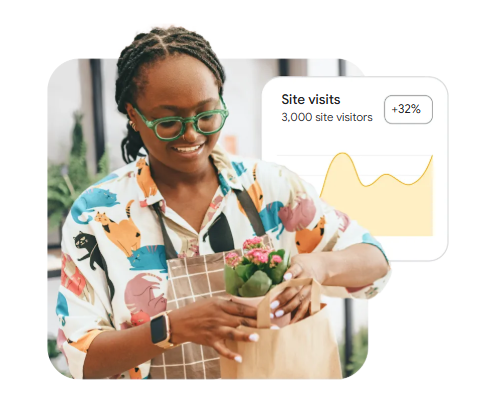
6. Cost-Effective Advertising Solution
Push notification advertising is budget-friendly. Compared to channels like Facebook Ads or Google Search Ads, the cost per click (CPC) is usually much lower. You can reach thousands of users for a fraction of the price.
For small businesses and affiliates with limited budgets, this makes it a powerful tool to test offers and drive conversions without overspending.
7. Easy to Set Up, Personalize, and Automate
Setting up push notifications takes just a few minutes.
Most ad networks and website tools offer user-friendly dashboards. You can write a short message, add a link, and choose when to send it. You can also segment users (like new vs returning visitors) and automate messages based on their actions—such as sending a notification after they abandon a cart or view a certain page.

8. Boosts User Engagement Without Interrupting
Push notifications are short, simple, and to the point. They don’t interrupt the user’s experience like pop-ups or full-page ads. Instead, they appear briefly and naturally—just enough to grab attention without being annoying.
This leads to higher engagement rates because users feel informed, not overwhelmed.
9. Perfect for Time-Sensitive Campaigns
Running a flash sale for a few hours? Launching a new product today? Push notifications are ideal for these situations.
You can alert your audience the moment your offer goes live. The immediate nature of push makes it one of the best tools for urgency-based campaigns where timing matters most.

10. Better Opt-in Rates Than Email
Most people hesitate to give out their email addresses, but they’re more comfortable clicking “Allow” on a push request—especially when it promises useful updates or discounts.
This leads to higher opt-in rates compared to email subscriptions, helping you grow your audience faster.
11. Supports Rich Media (Icons, Images, CTAs)
Modern push ads aren’t just plain text. You can add brand icons, feature images, emojis, and even call-to-action buttons like “Shop Now” or “Read More.”
This rich content makes the message more attractive and increases the chance of clicks and conversions.
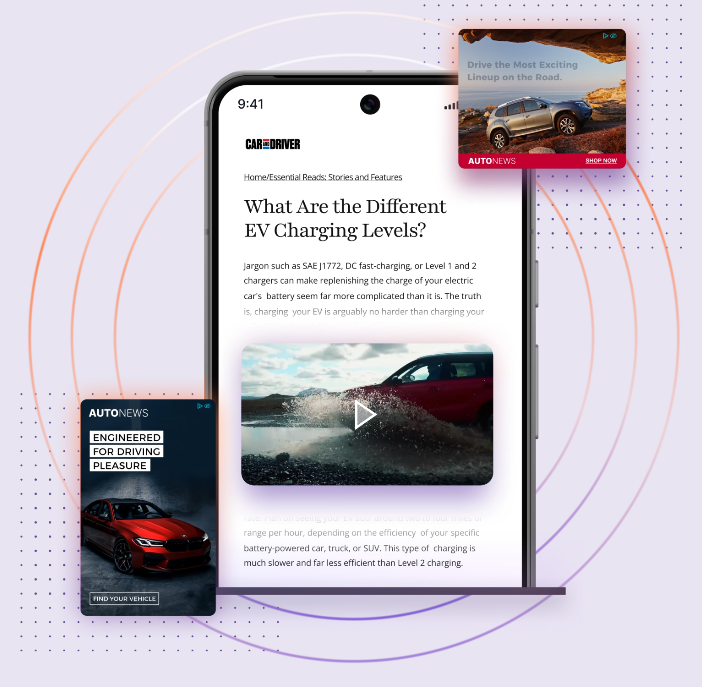
12. Great for Affiliate and CPA Marketing
Push ads are highly effective for affiliate marketers.
They work well with CPA (Cost Per Action) offers, where every click or signup can earn you money. Since push traffic is affordable and the CTR is high, it helps affiliates test offers quickly, scale winning campaigns, and increase ROI without high ad costs.
How Does This Works?
Here’s a simple explanation of how push notification advertising works, step by step:
1. User Visits a Website or App
When someone visits a website or uses an app that supports push notifications, they see a small popup asking for permission to receive notifications. This is called the opt-in prompt.
2. User Clicks ‘Allow’ (Opt-In)
If the user agrees, they are added to the subscriber list. Now, the advertiser or website owner can send them messages directly—even when the user is not on the website or app.
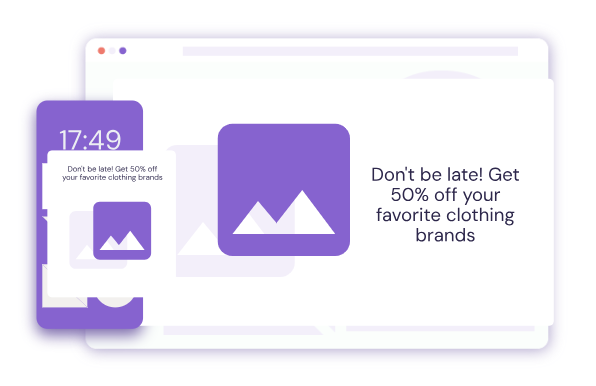
3. Advertiser Creates a Push Ad
The advertiser writes a short message, adds a title, optional image or icon, and a link. This message is called a push notification ad.
4. Ad is Sent Through a Push Network or Platform
The ad is sent using a push advertising platform (like PropellerAds, RichAds, or OneSignal). These platforms handle the technical part—sending the message to thousands or millions of users.
5. Notification Appears on User’s Device
The push ad shows up like a popup or alert on the user’s screen. It can appear on mobile phones, tablets, or desktop browsers—even if the user isn’t browsing the site at that moment.
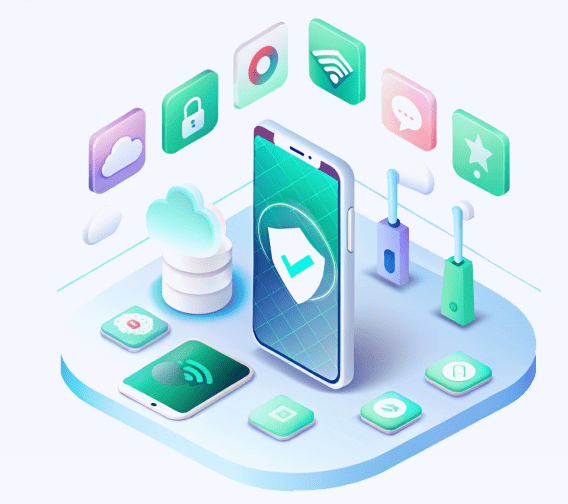
6. User Clicks the Notification
If the message is interesting, the user clicks it and is taken to a landing page, product page, blog post, or offer—whatever link the advertiser added.
7. Advertiser Tracks Results
Advertisers can see how many people received the ad, how many clicked, and how many took action (like signing up or buying). This helps them measure success and improve future campaigns.
Advantages & Disadvantages
| Advantages | Disadvantages |
|---|---|
| Delivers messages instantly | Users must give permission (opt-in required) |
| High visibility on mobile and desktop | Can be seen as intrusive if overused |
| Higher click-through rates than email | Limited message length (short text only) |
| Doesn’t require personal info like email/phone | |
| Cost-effective for advertisers | |
| Great for retargeting and time-sensitive offers | |
| Easy to set up and automate |
How Will it Help The Advertiser?
Here’s a detailed explanation of how push notification advertising helps the advertiser, written in simple and clear language:
1. Direct Access to Users, Anytime
Push notifications give advertisers the power to reach users directly on their mobile or desktop devices—even when those users are not actively browsing the website or app.
Unlike email, which can sit unopened in an inbox, or social media posts, which may never appear in someone’s feed, push notifications pop up in real-time, making them hard to miss. This ensures your message is seen at the right moment.
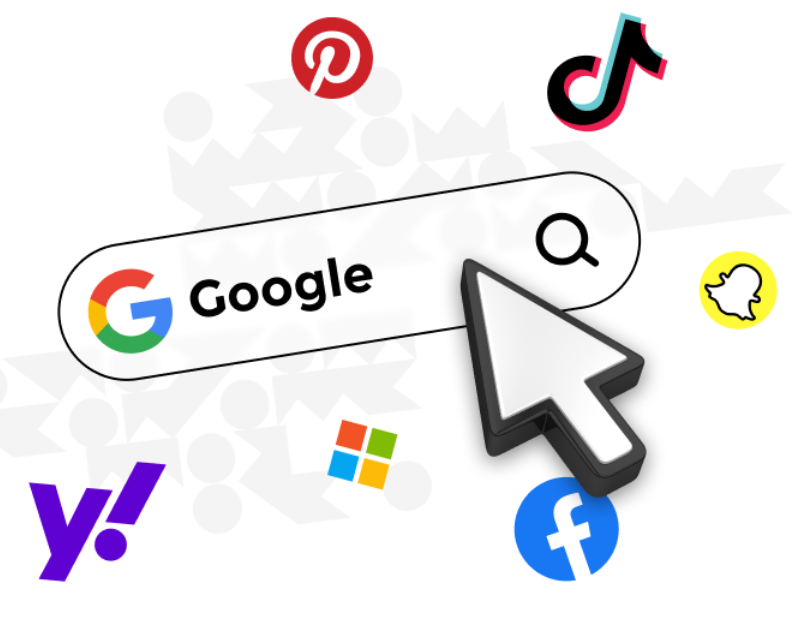
2. Higher Engagement and Click Rates
Push notifications usually have higher open and click-through rates compared to other channels like email. Why? Because the messages are short, timely, and appear like personal alerts.
When a user sees a limited-time offer or a product reminder pop up on their screen, they are more likely to click.
This helps advertisers get more traffic with less effort.
3. More Affordable Than Other Ads
Running ads on platforms like Google or Facebook can get expensive, especially in competitive industries. Push ads, on the other hand, are often cheaper. The cost per click (CPC) is usually lower, and you can still reach a large, targeted audience.
This makes it perfect for small businesses, affiliates, and marketers looking to get more results from a limited budget.
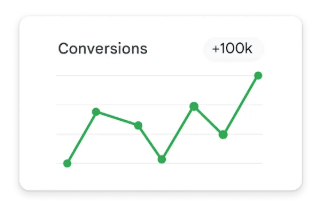
4. Faster Results for Time-Sensitive Campaigns
If you’re running a flash sale, event promotion, or product launch, timing is everything.
Push ads deliver your message instantly. You don’t have to wait for people to check their email or scroll through their feed. Advertisers can quickly drive traffic, boost sales, or spread awareness exactly when needed.
5. Powerful Retargeting Tool
Many users visit websites but leave without taking action. Push notifications allow you to bring them back.
You can send reminders like “Still thinking about this item?” or “Don’t miss your 10% discount.” Retargeting through push notifications helps increase conversions by reminding users of what they were interested in.
6. More Control Over Delivery
Unlike social media, where algorithms decide who sees your content, push notifications go directly to the user.
This gives advertisers full control over when and how their message is delivered. You can schedule messages, personalize them, and choose the audience—all from a single dashboard.

7. Trackable and Measurable
Push ad platforms provide real-time data on how your campaigns are performing. You can track:
- How many users received your message
- How many clicked
- What the click-through rate (CTR) is
- How many conversions you received
This data helps you understand what’s working and where to improve, so your future campaigns perform even better.
Conclusion
Push notification advertising is a powerful tool for modern marketers.
It offers direct, real-time access to users across devices—without needing personal contact details like emails or phone numbers. With higher engagement rates, lower costs, and simple setup, it helps advertisers get better results quickly.
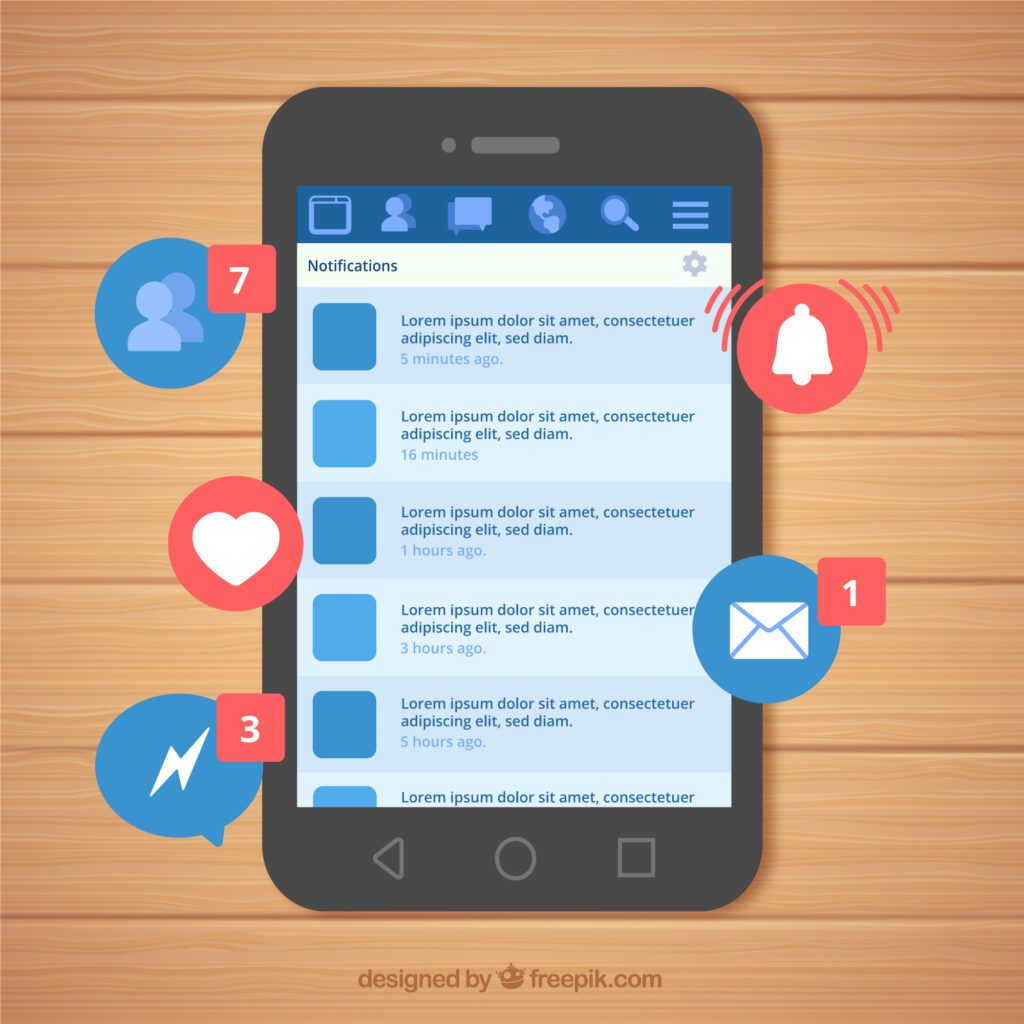
Whether you’re promoting time-sensitive deals, retargeting lost visitors, or simply looking to increase conversions, push ads give you the control and visibility you need.
When used wisely, they can become one of the most effective parts of your digital marketing strategy.
